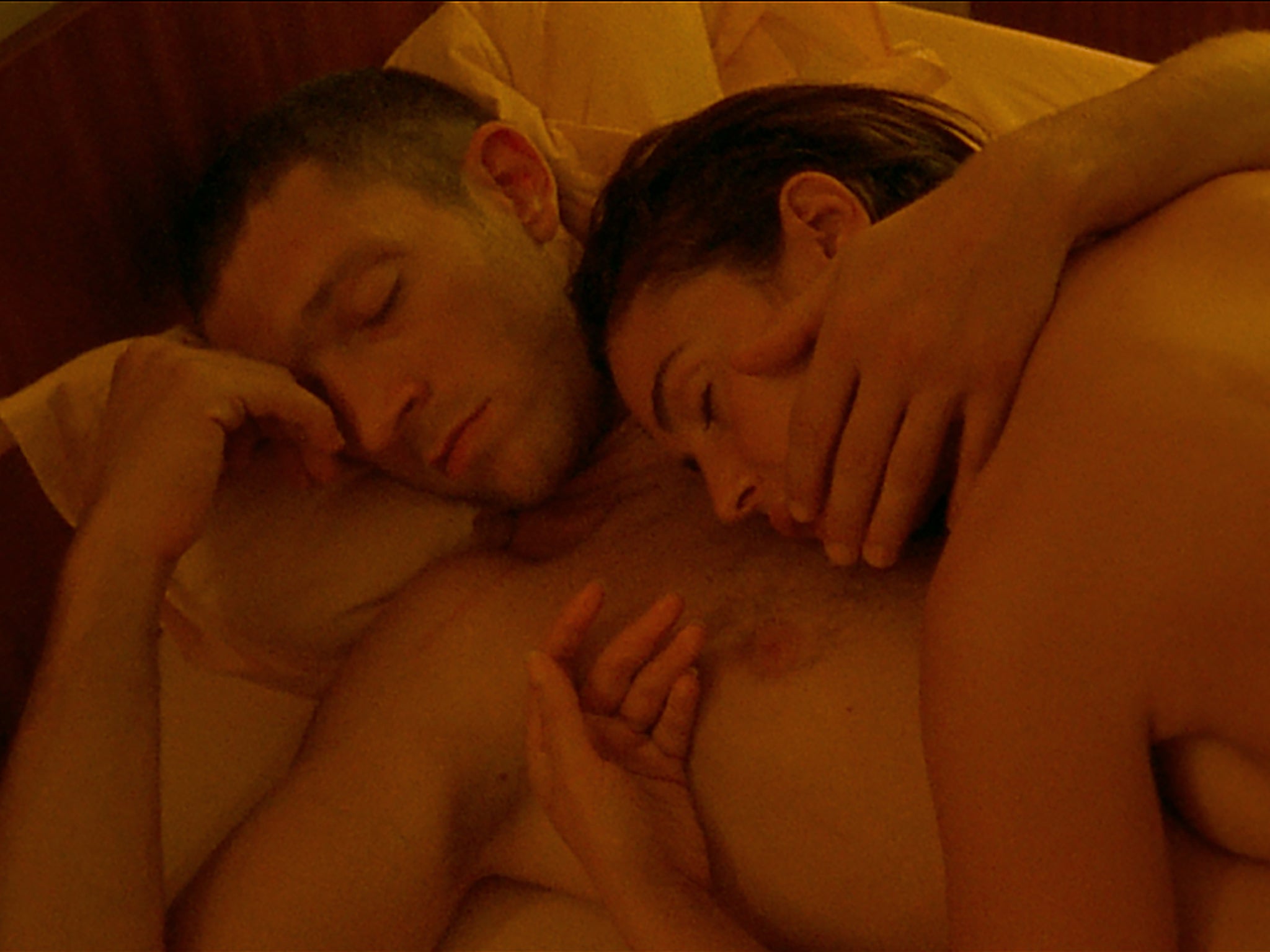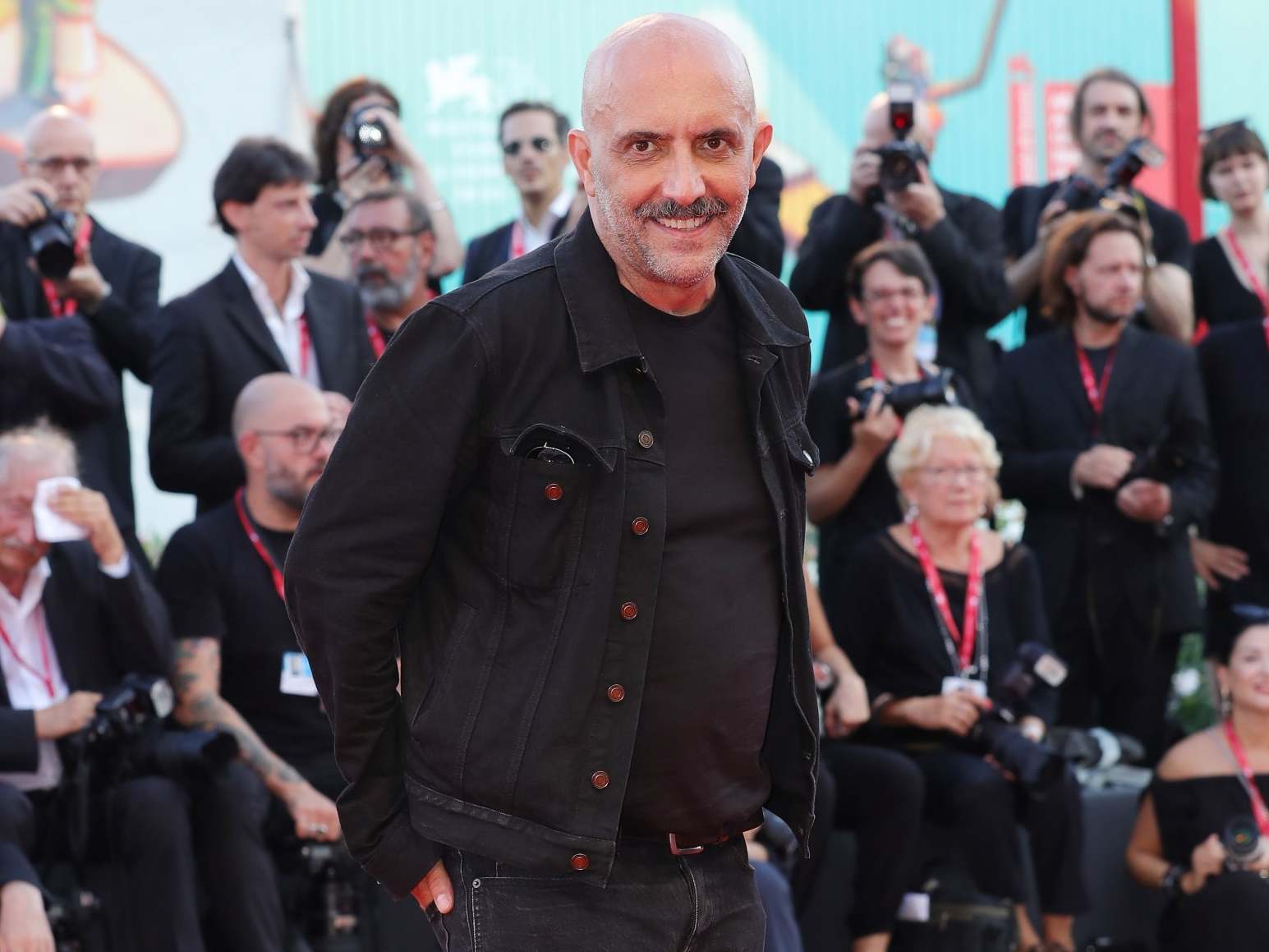‘Irreversible’ has the most brutal rape scene in cinematic history – so why is it being presented as a feminist film?
Gaspar Noé’s controversial 2002 feature has been re-edited and will be re-released next year. But in the wake of the #MeToo movement, asks Geoffrey Macnab, is revisiting such a film unconscionable?

There was a curious moment during the first press screening of Gaspar Noé’s new version of his 2002 feature Irreversible at the Venice Film Festival last week. In the middle of the film’s most notorious scene, the sequence in which Monica Bellucci’s character is brutally raped and assaulted by a sadistic, knife-wielding pimp in a subway underpass, the house lights suddenly came on. Looking around the cinema, you saw other spectators staring at their feet, trying to avert their gaze from the screen. They seemed a little bit ashamed about being there.
Seventeen years on, the scene still has the same repellent power that so upset audiences and critics, provoking mass walkouts when it premiered at the Cannes Film Festival. You can’t help but wonder why Bellucci and her director Gaspar Noé want to revisit the film now. Haven’t they made us squirm enough already? Surely, in the wake of the #MeToo movement, showing such a film again is absolutely unconscionable?
In fact, according to the filmmakers, the reverse is the case. Irreversible is now being presented to audiences as a “feminist” movie, as its star Bellucci calls it. She has a point. Few other movies in recent times have dealt so frankly with male violence towards women and the psychotic desire to hurt and humiliate them. However what undermines Bellucci’s thesis that Irreversible is a feminist tract at heart, is the sheer fetishistic nature of the violence; the way Noé dwells on the victims’ suffering. The rape sequence lasts for nine minutes and is done in a single shot. It is bravura filmmaking but that doesn’t make it any the less appalling. Rape sequences in other controversial films such as A Clockwork Orange (1971), Straw Dogs (1971) and Elle (2016) are nothing like as graphic or as prolonged as the agonising sequence shown here at such length.

The reason Irreversible was programmed in the Venice Film Festival this week is that Noé has re-edited it. In the original cut, the story ran in reverse. The rape, which takes place after a party at which Alex (Bellucci) and her boyfriend Marcus (played by her then-husband Vincent Cassel) have argued, happened close to the beginning. We were then whisked back in time. Now, in the new “straight cut”, the structure is chronological.
In telling the story backwards the first time around, Noé was borrowing the reverse chronology used in Betrayal, Harold Pinter’s 1978 play about infidelity, and in Martin Amis’s 1991 novel, Time’s Arrow. The device was ingenious but alienating. It meant that the film seemed cold and experimental. Its violence was horrific but with a strangely abstract quality. The fact that the subway in which the pimp attacked Bellucci had dark purple walls emphasised the fact that this wasn’t conventional social realism. Noé was turning modern-day Paris into his vision of hell. The martial drumming heard over the credits (which haven’t been changed in the new version) added to the ominous mood of the storytelling.
Presented clockwise, the film (now six minutes shorter than in 2002) is a far richer and more emotional experience than in the original version, at least in its earlier scenes. The new Irreversible still features the same two horrendous acts of violence. There is not only the rape but the scene a few minutes later, inside the “Rectum” gay nightclub, in which Marcus and his straitlaced friend Pierre (Albert Dupontel) are trying to track down Alex’s assailant. The quietly spoken Pierre bashes the face of the man he thinks is responsible with such force that we can see the man’s skull crumbling like papier-mache.
With these incidents near the start of the 2002 cut, audiences were understandably so shell shocked that they missed the delicacy and lyricism found at the other end of the movie. In the revised cut, we learn early on that Alex is pregnant. We can pay more attention to the intimate, beautifully shot scenes between the naked Cassel and Bellucci in which they smoke, make love and listen to music in their apartment. There are hints of Truffaut’s Jules et Jim (1962) in the playful sequences in which the threesome of Alex, Marcus and Pierre (Alex’s former lover) head off to the fateful party. Alex emerges as a stronger, more complex character. We don’t just see her as a victim but identify with her far more closely because so many extra details about her are revealed.
The way Noé described ‘Irreversible’, it was as if he wanted us to treat it as a public information film. You should watch it to understand (and guard yourself against) the most brutal extremes of male behaviour and the self-defeating nature of revenge
As in his 2018 film Climax, which also takes place over a single night and which follows a group of dancers behaving in an ever more manic and destructive fashion after someone spikes the sangria with LSD, Noé is exploring how quickly humans can turn from civilised behaviour to barbarism.
The shock factor is still here in the new cut. Indeed, there is an extra tension and suspense because we (like Alex herself) have the premonition that something awful will happen. We are also better able to understand why Marcus is so set on revenge.
Even so, some of the rhetoric used by Noé and Bellucci in Venice to defend and celebrate Irreversible sounded a little glib. For example, the former described the film as “testosterone-phobic” in its relentlessly dark view of male drives.
Bellucci, meanwhile, reminded us that when she first asked Noé why he chose her for the film, he said he wanted to show how “men sometimes try to destroy beauty”. At the time she made Irreversible, the Italian actress and fashion model was at the height of her fame. She had starred in Giuseppe Tornatore’s romantic comedy-drama Malena (2000), which had become a worldwide hit. Magazines and fashion houses fawned over her. Instead of celebrating her glamour and fame, Noé set out (in symbolic fashion at least) to degrade and destroy her. The horrific shot of her crumpled, bloodied body being wheeled into an ambulance is as far removed from the Bellucci who appeared in fashion shoots as it is possible to imagine.
Noé was at pains to point out that the film was stylised and self-conscious.
“The representation of cruelty is a representation. It is not a documentary. That’s why people like going to see movies about the Titanic or concentration camps. Movies can educate you and prevent you falling in some traps.”
The way Noé described Irreversible, it was as if he wanted us to treat it as a public information film. You should watch it to understand (and guard yourself against) the most brutal extremes of male behaviour and the self-defeating nature of revenge.
These are familiar arguments that have also been made over the years about everything from the eye-gouging scene in King Lear to the bloody excesses of Jacobean revenge tragedy, and the more extreme moments in Sam Peckinpah’s Straw Dogs (1971).
“Inside the brain, you have three brains – the reptilian brain, the mammal brain and the neocortex. That (the neocortex) is the one that allows you to play chess, predict the future and make plans. That’s the rational brain but in the situation of drama and stress, sometimes the reptilian brain dominates the rational brain,” the director told me when I interviewed him last weekend.
There’s far more of the rational brain in the new cut than its predecessor. With the story told in order, you empathise with the characters. You have time to admire the fluid camera work and the brilliance of the performances. Nonetheless, Irreversible is still a film that hits you hardest in the guts, but is ultimately sickening in its reptilian themes.
‘Irreversible – Straight Cut’ premiered at the Venice Film Festival. It will be released in the UK next year
Join our commenting forum
Join thought-provoking conversations, follow other Independent readers and see their replies
Comments